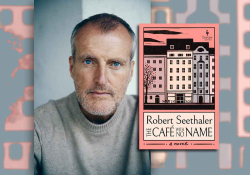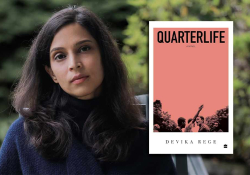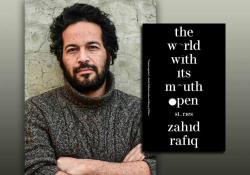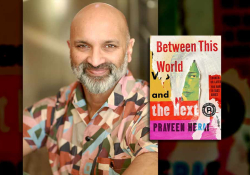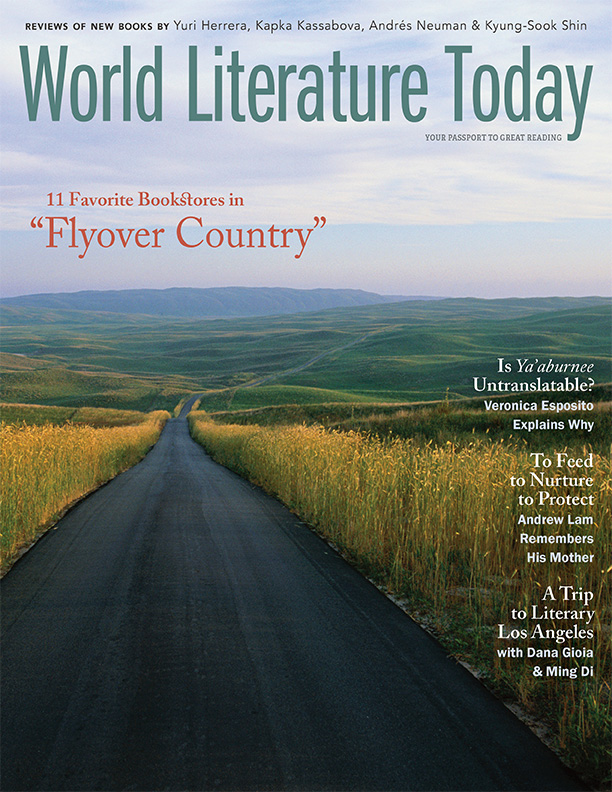7 Questions for Jane Wong
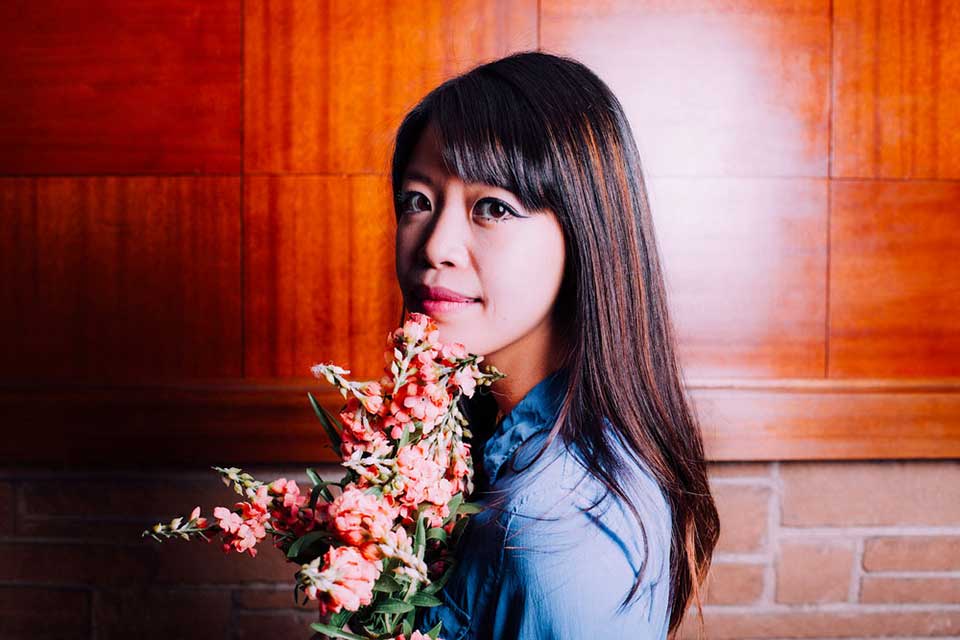 Jane Wong’s memoir, Meet Me Tonight in Atlantic City, is a “story of lost enterprises”—for example, her family’s restaurant—but it’s also a story of a tender sibling relationship, a strong and comforting mother, the Great Famine, friendship among co-workers, anti-Asian violence, food, pageants, Ping-Pong Diplomacy, and much more. The author of two poetry collections, Wong displays her talent in her first book of prose.
Jane Wong’s memoir, Meet Me Tonight in Atlantic City, is a “story of lost enterprises”—for example, her family’s restaurant—but it’s also a story of a tender sibling relationship, a strong and comforting mother, the Great Famine, friendship among co-workers, anti-Asian violence, food, pageants, Ping-Pong Diplomacy, and much more. The author of two poetry collections, Wong displays her talent in her first book of prose.
Q
Your writing style is dazzling, and though it’s surely an odd thing to say, I particularly enjoyed your use of colons. What’s your favorite mark of punctuation and why?
A
Not odd at all! In fact, I’m so honored that you gave a shout-out to the colon! Thank you. I love punctuation. And punctuation was one way of weaving in some of my poetry background in this prose book. It’s hard to choose a favorite, but I really adore the em dash. I really love how it acts as this long pause, echoing a lot of the longing that’s in the memoir. I’m also a maximalist in all things (I want to eat all the food! I want to wear all the colors), and the em dash feels like a punctuation mark that adds on more than is necessary. I also love the visual impact of an em dash—how it looks like a bridge! But also, clearly, I love the exclamation point, too. And the comma. And the colon.
Q
Near the end of the book, you mention joking with your friends about making a podcast called We Don’t Talk about Poetry, where you’d invite poets to discuss anything else: “thrifting, kitchen utensils, pet food, sex toys, house plants, lipsticks, stretches for lower-back pain.” I’d listen to this. Do you have any favorite podcasts?
So many of my friends are poets, and yet we so rarely talk about poetry.
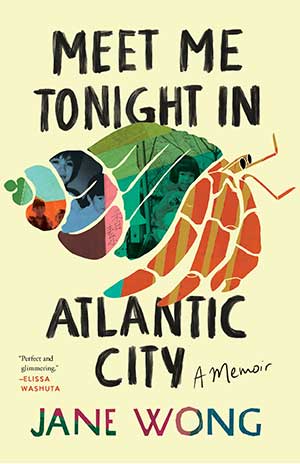 A
A
Your encouragement is much appreciated! We really do need to make this podcast then, ha! It’s very much like real life. It’s so funny to me that so many of my friends are poets, and yet we so rarely talk about poetry. Which then makes me wonder if everything is a poem (is lipstick a poem?). I commute to teach in Bellingham from Seattle, so I definitely listen to lots of podcasts. I’m pretty new to podcast life! Right now, I really like Into It, Throughline, Code Switch, VS, All My Relations. And I loved The Racist Sandwich when it was still on! And I also want to give a shout-out to Richest Hill, which I listened to while I drove to Butte, Montana. Butte makes a special appearance in the memoir, since the country’s longest-running Chinese American restaurant is there: the Pekin Noodle Parlor.
Q
What else are you listening to and watching these days?
A
I have a pretty varied media life. On vinyl, I’m listening right now to Black Belt Eagle Scout’s At My Party with My Brown Friends and The Land, the Water, the Sky. (I just saw them play in Seattle at Neumos!) I also have this great Roberta Flack album, Blue Lights in the Basement. I really love going to Lifelong Thrift in Seattle and finding records there. I’m also listening to Angel Olson’s Big Time, especially the song “This Is How It Works.” There’s this one lyric, “And I’m so tired of saying I’m tired,” that I really feel. I finally got caught up on The White Lotus. I always end up watching viral shows way after everyone else. I’m also loving South Side’s third season. I rewatch The Great Pottery Throw Down often. And I also like watching YouTube videos like Rainbow Plant Life’s channel and Listed’s Tiny Spaces series (I really like watching people cram things into tiny apartments).
Q
Something I learned about you in the book that left me gobsmacked is that you have as many as eighty houseplants. (I struggle to keep even a single houseplant alive.) Some are more than a decade old. How do you keep so many going, and what do they provide you?
A
Start with a spider plant or a snake plant! I promise you, it will live! I think the key is placement and watering/misting. Plants are so particular in terms of where they want to thrive; it’s always a game of figuring out how close to the window they should be. I also have learned to water them less over the years; my immediate tendency is to overwater. On Sunday mornings, I have a plant hour where I water and mist the big tropical ones (my favorites being my elephant ear and my bird of paradise). It’s a pretty soothing routine. My dog is very confused by it. He’s like, They’re not even cute like me. They give me so much solace. I love watching them grow new leaves. I also love cutting off the leaves that die, since I know that will help its growth. And I especially love propagation! I’ve given so many friends plant babies from my big pilea! Since my mom has such a green thumb, it also feels like a direct connection to her. I definitely clip off aloe pups to bring home on the plane from Jersey.
Plants give me so much solace. I especially love propagation!
Q
In your memoir, you write about asking your students two questions: “What obsessions keep circling around them? To return to Lorde, what action do they want poetry to catalyze?” How do you currently answer these questions?
A
Ooh, great question. My mom; longing and desire; night creatures (raccoons, bats, etc.); mangoes and mango-flavored anything; silk pants and jumpsuits; grease and oil; how we move through fear, rage, and grief; chartreuse and pink; ghosts; felt-making (I make handmade paper and ceramics); mushrooms; intimacy. I want poetry to remind me to be present at all times.
Q
You grew up in New Jersey but now live in Seattle. What are you favorite Seattle spots?
A
I have way too many to name! Here are some completely random Seattle faves: Bavarian Meats for their massive Haribo gummy selection; the T-dock; Fremont Vintage Mall; Lifelong Thrift; Mike’s Noodle House; Volunteer Park Conservatory; the Eastlake Zoo Tavern for ping-pong, the bunnies at Discovery Park; that roasted-corn stand in White Center; the Pacific Bonsai Museum on Federal Way; Elliott Bay bookstore + Open Books + Third Place Books; Magnuson’s dog park; Ice Box bar/arcade; Fort St. George; Danny Woo gardens; Victrola Coffee on 15th; the Goodwill on Dearborn; all the hot dogs on Pike/Pine.
Q
In the chapter “Wongmom.com (Don’t Mess with Me),” you write: “Even if poetry fails us, we need it to survive.” Who are some of the poets whose work is essential to your own survival?
A
Wow, a big question! And again, too many to name. Here are a few: Lucille Clifton, Theresa Hak Kyung Cha, Victoria Chang, Anastacia-Reneé, Gwendolyn Brooks, Diana Khoi Nguyen, Michelle Peñaloza, and Chen Chen.
Jane Wong is the author of the poetry collections How to Not Be Afraid of Everything and Overpour. Her most recent book is Meet Me Tonight in Atlantic City, a memoir. An associate professor of creative writing at Western Washington University, she grew up in New Jersey and currently lives in Seattle, Washington.





